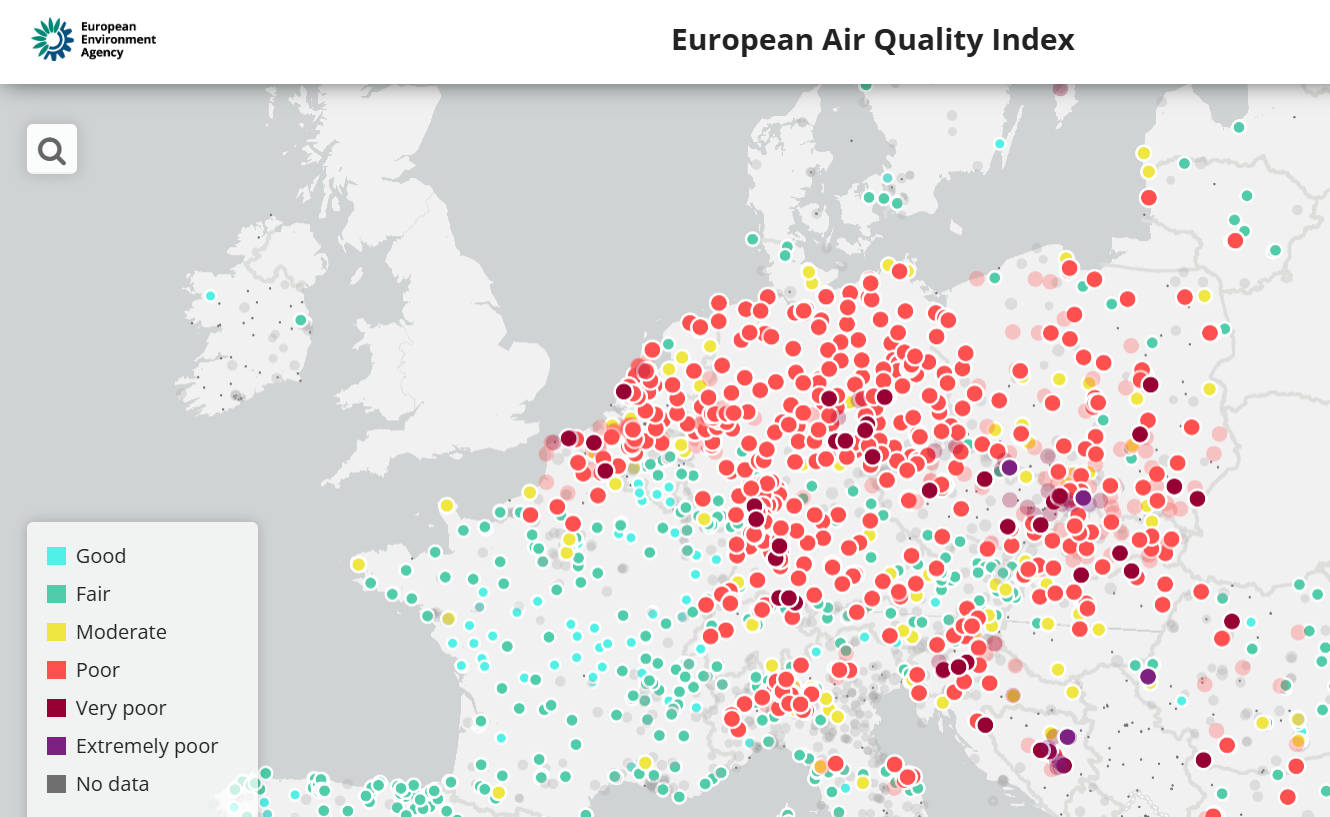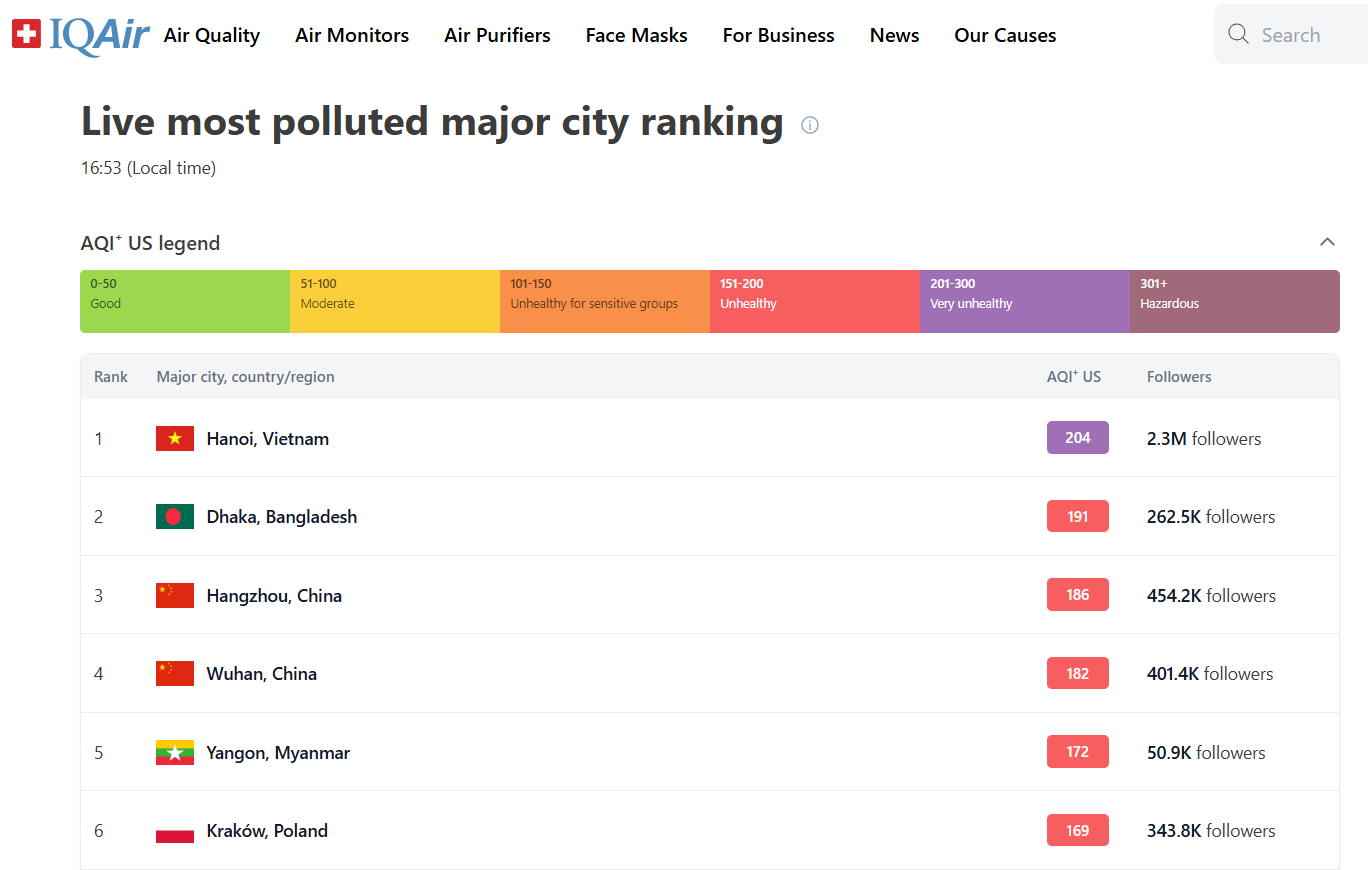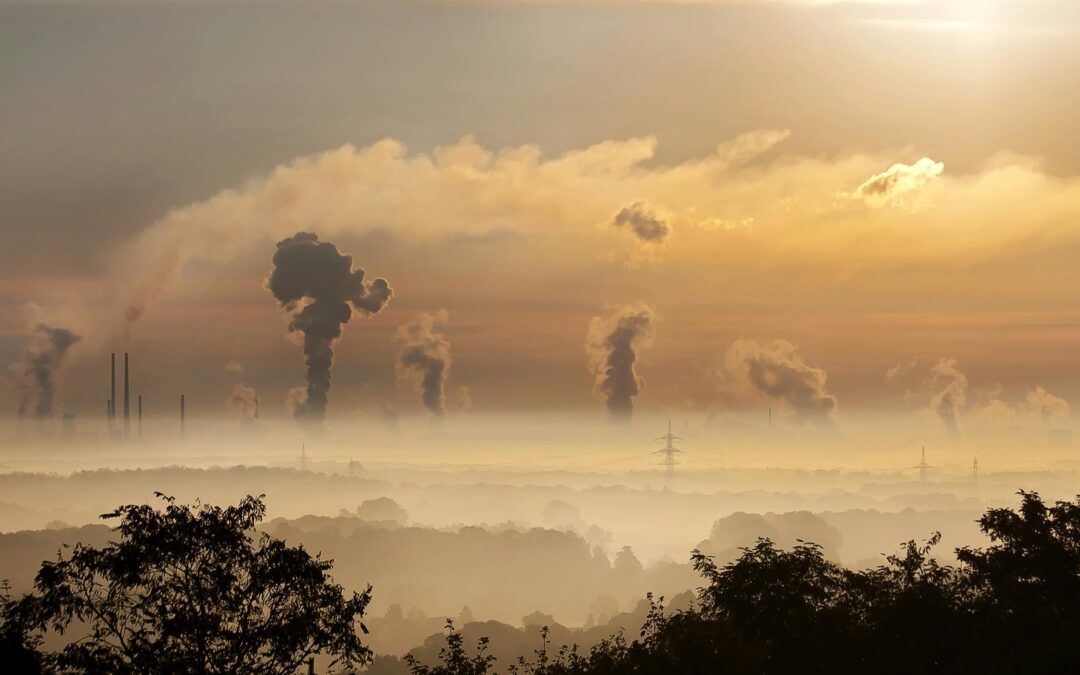Keep our news free from ads and paywalls by making a donation to support our work!

Notes from Poland is run by a small editorial team and is published by an independent, non-profit foundation that is funded through donations from our readers. We cannot do what we do without your support.
Half of the air pollution currently engulfing Berlin originates in Poland, a senior official at Germany’s Federal Environment Agency (UBA) has said. Some other major cities are also affected, with between 25% and 35% of air-born particulates coming from Poland.
German tabloid Bild today described the pollution as a “thick cloud of Polish smog from coal-fired power plants and private heating systems”.
Seit Wochen herrscht quasi Windstille, aber der Smog kommt aus Polen. 🤪 Fakt ist, der Smog kommt aus den „gemütlichen“ deutschen Kaminen und Holzöfen, betrieben von rücksichtslosen Mitbürger*innen. https://t.co/gorPzdVeDm
— Sandra Kallmeyer (@ScreenOrigami) February 12, 2025
Poland has long had some of Europe’s worst air pollution, caused in particular by the fact that many households burn coal for heating. The country also relies on coal for almost 60% of its power generation, by far the highest level in the EU.
Currently, Germany – which is also a large consumer of coal – is suffering from some of its worst air quality in years. In places, the level of PM2.5 (a type of air pollutant deemed the most harmful to human health) has been reaching 100 micrograms per cubic metre, far above the warning threshold of 50 per cubic metre.
Speaking today to Bild, Ute Dauert, head of air quality assessment at the UBA, said that “around 50% of the particulate matter in Berlin currently comes from Poland”. Berlin is around 70 kilometres (43 miles) from the Polish border.
She noted that other cities in Germany, including Hamburg, Dresden and Hanover, are seeing emissions from Poland accounting for between 25% and 35% of current pollution.

The European Environment Agency’s European Air Quality Index on the afternoon of Tuesday, 11 February 2025.
Meteorologist Dominik Jung likewise pointed to Poland’s continued reliance on coal as a major contributor, while Hartmut Herrmann of the Leibniz Institute for Tropospheric Research explained that fine dust particles can remain in the air for several days, which allows pollution from the east to drift into Germany.
“We have been spoiled in recent years because we had two warmer winters with a lot of wind and rain,” said Dauert.
“Now, we have a cold winter, a typical winter for Central Europe, with extensive heating and a build-up of pollutants due to the weather,” she added. “But this clearly shows us: emissions in Europe are too high, and we need to reduce them.”
The situation has been exacerbated by meteorological conditions, with an atmospheric inversion – where a layer of warm air traps colder air beneath it, preventing vertical air movement – keeping pollutants close to the ground and stopping them from dispersing.
In response to the smog, the UBA has advised Germans to limit outdoor activities. “It is better to go for a leisurely walk instead of jogging,” the agency said. “You will inhale much less polluted air while still benefiting from exercise.”
Such warnings are common in Poland during the colder months, when the air worsens due to household heating. Such pollution is estimated to be responsible for tens of thousands of premature deaths in the country annually.
Nowy Sącz has the EU’s second-most-polluted air, with two other Polish cities also featuring among the worst ten in @EUEnvironment's latest ranking.
Poland as a whole also has the EU's highest annual number of deaths linked to air pollution https://t.co/G5PyGkPSpj
— Notes from Poland 🇵🇱 (@notesfrompoland) September 5, 2024
In recent years, however, Poland has made progress in improving air quality through investment in renewable energy, government programmes subsidising cleaner heating systems and better insulation, and the implementation of stricter emissions regulations.
Thanks to this, Poland improved in the latest urban air quality ranking by the European Environment Agency (EEA), with three Polish cities among the EU’s ten most polluted, down from five the last time it was published.
On Wednesday afternoon, however, global monitoring service IQ Air’s global air ranking showed that Kraków, Poland’s second biggest city, was the sixth most polluted city in the world.

IQ Air’s global air quality index on the afternoon of Wednesday, 12 February 2025.

Notes from Poland is run by a small editorial team and published by an independent, non-profit foundation that is funded through donations from our readers. We cannot do what we do without your support.
Source: Pixabay / Pexels

Alicja Ptak is deputy editor-in-chief of Notes from Poland and a multimedia journalist. She has written for Clean Energy Wire and The Times, and she hosts her own podcast, The Warsaw Wire, on Poland’s economy and energy sector. She previously worked for Reuters.



















